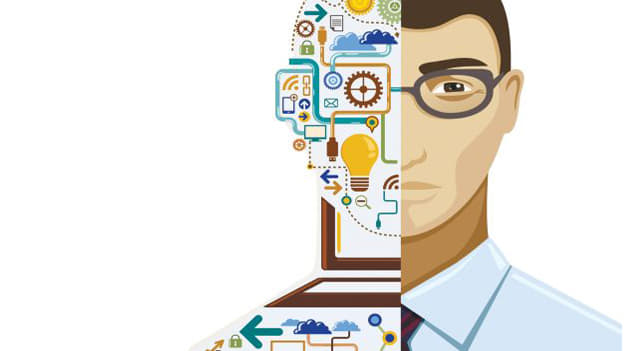Digital transformation in HR through tech adoption

After COVID-19 had notoriously wreaked havoc in the world economy with a prolonged lockdown, businesses all over the world had to rethink their business offerings, processes and their entire operational model overnight, in order to stop themselves from ceasing to exist. As stated in a report by McKinsey, this pandemic has brought in dramatic digital transformation, which led companies to have catapulted five years forward in consumer and business digital adoption in a matter of eight weeks. While each and every sector across industries have been deeply impacted by this unprecedented crisis, the conventional world of Human Resources must have undergone an instant tech glow-up by the grace of this virus.
The digital transformation in HR has greatly aided in rejuvenating a wide range of industries hit by the pandemic. As we are all forced to move towards a world of no touch, and accepting only virtual and remote processes, technology has become the heart of human resources. From healthcare to aviation, automobiles to media, HR tech has worked wonders in stopping each and every affected sector from falling into the dark pit of crisis, in ways unimaginable. The new age collaborative tools definitely deserve a fair share of credit in making it possible. If we take the healthcare industry as an example, the abrupt adoption of technology in the HR sector has even enabled 200 doctors to join remotely from various parts of the country.
Surprisingly, the HR sector was rather quick, considering its late start, in adopting technology to perform its daily operations, while picking up some of the most sought after trends in the process. Speaking of trends, with this brand new convergence of technology into human resources, the sector is not just being limited to ensuring smooth functioning of businesses. By implementing emerging technologies like that of AI, ML algorithms to gain insights on internal operations, HR is, in fact, winning at this game of trends. Led by the new normal, key HR functions like recruitment, which was highly personalized and required physical presence, are now entirely being performed virtually through video conferencing. Along with that, other major HR responsibilities like onboarding, documentation, induction and training are also being efficiently taken care of on virtual platforms. Whatsapp,an online messaging app has become an official communication tool when it comes to day to day operations for various industries – sharing offer letters is one such example. From incorporating video analytics for regulating social distancing in the office premises, to conducting virtual interviews, and what not, the prompt change we see today in this sector is rather incredible.
Owing to this COVID-19, a majority of organizations have to come up with new business models, altered work norms, as well as new methods for assessing people. Several online modules are being put to use in different occasions like meetings, conferences, even Fun-Friday events to ensure employee engagement, virtually from diverse locations.In this new world, businesses would go for the sheer capabilities of a candidate over experience or education. They would be interested to know what new specialist talent to hire, and how efficient is the talent working from home. Digital transformation that had nothing to do with HR functions earlier in a lot of organizations, has now become top priority, due to which digital technologies that were not considered of much importance earlier, are seen to have suddenly gained reputation and become mainstream. For example, emerging technologies and analytics tools are popularly implemented in various functions of a business, but it has little use in human resources processes. However, amidst this crisis, use of these tools could accelerate the smart decision-making process in a swift and inexpensive way, and much more.
Going forward, HR tech is expected to grow even more than 100 percent of what it is now. This growth was originally set to be seen in the next 5 years, however, all the unexpected turn of events in this year have worked in a way for us to have it realized by the end of 2020-21. Most of the companies are operating with 100 percent tech oriented HR proceedings, with automated systems. Many have even come up with virtual job fairs, work-from-home based jobs, job matching algorithms and other such initiatives. The massive progress seen so far in these HR tech systems have even enabled them to make some good business already.















